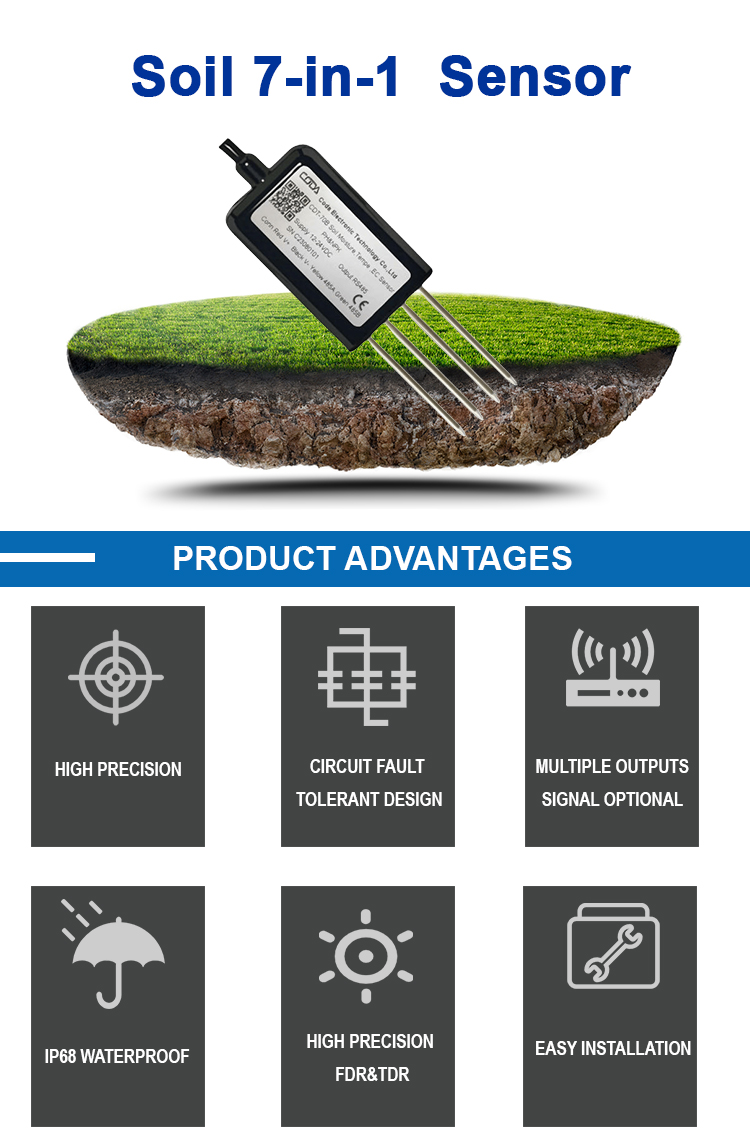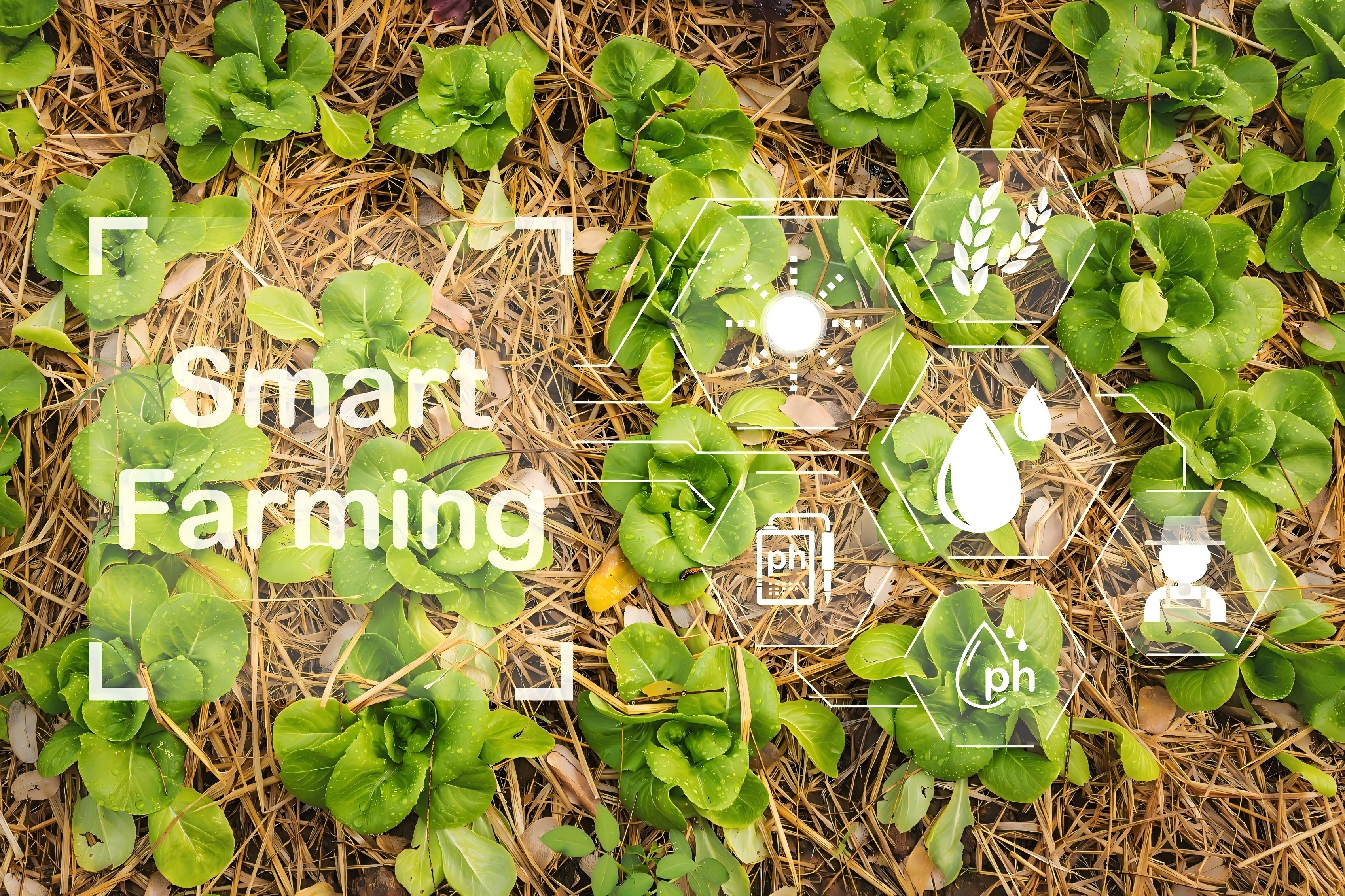In recent years, smart agriculture has changed how we farm. It has made farming more efficient, productive, and sustainable.
A key part of modern precision agriculture is using sensors for soil temperature, moisture, and electrical conductivity (EC). These sensors give farmers real-time data. This helps them make better decisions and optimize conditions for crop growth.

Accurate testing of soil temperature, moisture, and EC levels is critical for achieving sustainable and productive farming. Each of these factors plays a significant role in plant health, soil quality, and resource efficiency:
Soil Temperature Testing: Temperature affects seed germination, root development, and microbial activity in the soil. Studies show that the optimal soil temperature for most crops is between 10°C and 30°C (50°F–86°F).
Continuous monitoring helps farmers plant crops at the right time. This lowers the risk of poor growth and ensures a good yield. It can also detect sudden temperature changes. This allows farmers to take steps to prevent crop stress.
Soil Moisture Testing: Water is a vital resource in agriculture, and its availability directly affects plant growth. Research indicates that proper soil moisture management can increase crop yield by up to 20%. Testing soil moisture levels prevents under- or over-irrigation, reducing water waste while ensuring that plants receive adequate hydration. This is particularly crucial in regions facing water scarcity, where efficient irrigation can reduce water usage by 30-50%.
Soil EC Testing: Electrical conductivity serves as an indicator of soil salinity and nutrient levels. A study by the FAO found that too much salt in the soil affects about 20% of irrigated land worldwide. This reduces how much crops can grow.
Regular EC testing allows farmers to detect nutrient deficiencies or salt buildup, preventing soil degradation. Proper EC management ensures crops receive the right amount of nutrients, leading to healthier plants and higher yields.
Automatic weather stations (AWS) further enhance smart agriculture by providing comprehensive environmental monitoring. When used with soil sensors, AWS can check weather, rainfall, and sunlight. This gives a complete view of what affects crop health.
A smart farming system can change irrigation on its own. It does this by checking soil moisture and rainfall forecasts. This helps save water and supports sustainability.
Weather stations provide temperature and humidity data. This information helps predict disease outbreaks. Farmers can then take preventive measures early.

Precision Irrigation Management – Testing soil moisture levels ensures optimal water use, preventing overuse or under-irrigation. Studies show that precision irrigation can reduce water consumption by up to 50% while maintaining crop productivity.
Optimized Fertilization – Regular EC testing helps prevent over-fertilization. This reduces environmental harm and lowers costs. Studies show that better fertilization methods can cut fertilizer use by 30% without hurting yields.
Maximized Crop Yields – Maintaining optimal soil conditions improves plant growth and overall agricultural output. Reports show that farms using precision soil monitoring have seen yield increases of 10-25%.
Reduced Costs and Labor – Automated soil testing minimizes manual monitoring, saving time and resources. Studies suggest that automation in agriculture can reduce labor costs by up to 40%.
Environmental Protection – Efficient resource use leads to sustainable farming practices and reduced environmental degradation. Smart soil monitoring has been shown to decrease nutrient runoff by up to 30%, reducing pollution in water bodies.
Farmers and agricultural professionals looking for reliable soil monitoring solutions can use Coda Sensor. They provide high-quality soil sensors that accurately measure temperature, moisture, and EC.
These sensors work well with smart farming systems and weather stations. They provide real-time data to improve decision-making and manage resources better. By utilizing Coda Sensor technology, farmers can ensure healthier crops, improved efficiency, and sustainable agricultural practices for the future.
In the era of precision agriculture, the efficie
Discover how online pH sensors improve smart agr
Choosing the right online pH sensor is critical
Contact: Molly
Phone: +86-17775769236
Tel: 86-0731-85117089
Email: molly@codasensor.com
Add: Building S5, Aux Square, Yuelu District, Changsha City, Hunan Province, China
We chat